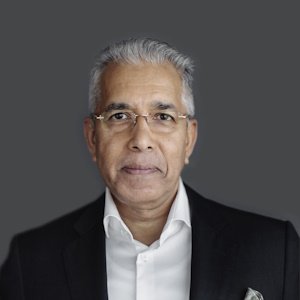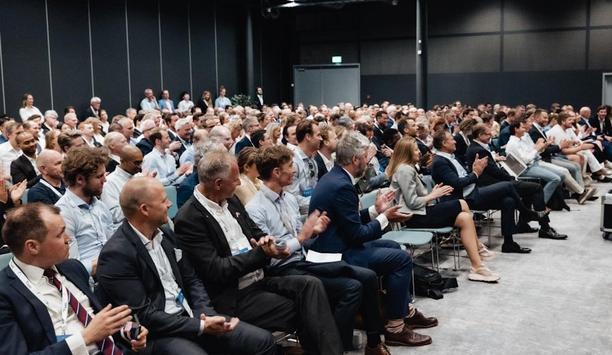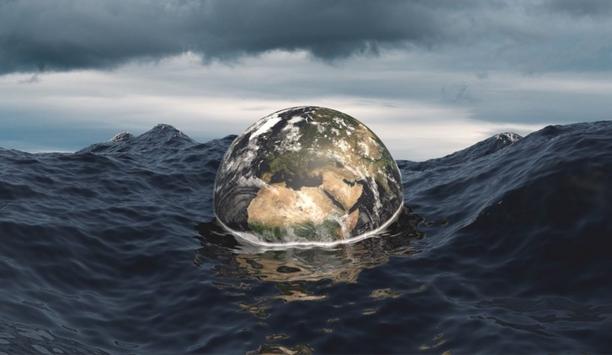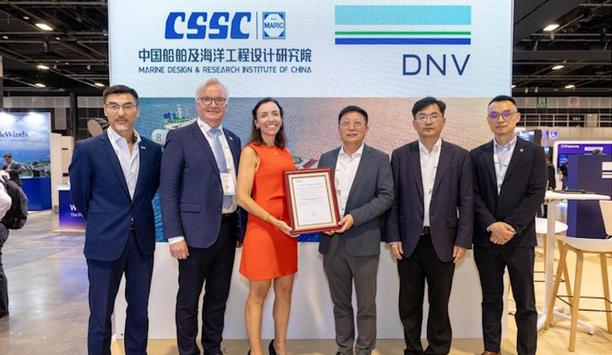As the shipping industry transitions to cleaner fuels, ammonia as a marine fuel is gaining momentum. Alfa Laval is at the forefront of enabling this shift.
Through research, product development, and strategic partnerships, the company is building the expertise and solutions needed for a safe and efficient transition to alternative fuels.
Addressing challenges
Alfa Laval is now accelerating the development of new technologies for ammonia
The unique properties of ammonia, including its low flash point, high toxicity, and low calorific value, pose distinct challenges for its use as a fuel. Ammonia-fuelled ships require advanced systems for tank containment, boil-off management, fuel supply, and purge/vent control.
Drawing on its extensive expertise with fuels like methanol and LPG, Alfa Laval is now accelerating the development of new technologies for ammonia.
Developing steam boiler technology as a 2-in-1 solution
A steam boiler can offer a comprehensive solution to the challenges of using ammonia as a marine fuel. The Alfa Laval Aalborg ammonia dual-fuel boiler system can be a cost-effective, multi-purpose system for ammonia-capable ships.
Together with meeting the ship's heat demand through steam generation, it can help to safely handle boil-off ammonia evaporation, and effectively remove ammonia vapour in the purge/vent stream, without adding bulky equipment. At present, the ammonia dual-fuel boiler design concept is under development, in collaboration with its partners.
Collaborating for ammonia fuel supply system
Reliable automation system of FCM Ammonia holds all critical functions of FSS, FVT, and VTS
The new Alfa Laval FCM Ammonia, designed for secure use of ammonia includes a fuel supply system (FSS) as the primary solution for feeding the fuel to the engine. This base system is integrated with a fuel valve train (FVT) for isolating the engine from upstream systems and a vent treatment system (VTS) for ensuring a controlled vent release into the atmosphere. The dedicated automation system of FCM Ammonia regulates all critical functions of FSS, FVT and VTS.
FCM Ammonia is available for purchase, with a tested and capable supply chain. The marine design will be consolidated by the end of 2024 with the first marine delivery expected by the end of 2025, in line with the timeline for the first dual-fuel ammonia marine engines.
Widest heat transfer portfolio for future fuels
Alfa Laval offers the widest and most comprehensive heat transfer portfolio in the market. Alfa Laval Semi-welded Plate Heat Exchanger (SWPHE) portfolio has been used for ammonia heating and cooling in refrigeration systems for many years. The SWPHE is likewise suitable and used for the ammonia fuel gas supply system (FGSS), where the ammonia flows through welded channels.
With a maximum design pressure of up to 65 bar, SWPHEs provide optimised operations while minimising ammonia hold-up volume. Apart from SWPHE, Alfa Laval also offers printed circuit heat exchangers (PCHE) for ammonia FGSS applications that requires higher design pressures.
Tank management solutions for ammonia carriers
Alfa Laval’s brand, Scanjet offers the SURVEYOR system as a tank management solution for ammonia carriers
Alfa Laval’s brand, Scanjet offers the SURVEYOR system as a tank management solution for ammonia carriers. This versatile solution provides accurate cargo monitoring and overfill prevention. With features like full volume calculations and pump/valve control integration, SURVEYOR optimises cargo and bunker operations while meeting stringent safety standards.
To support its customers with the fuel portfolio, Alfa Laval has a strong service network with fuel experts around the globe. Alfa Laval Marine Service offers worldwide and 24/7 support throughout the lifecycle of the equipment, ensuring greater uptime and optimised performance.
Recent partnerships for ammonia technology development
In 2022, Alfa Laval got approval for testing ammonia at the Alfa Laval Test & Training Centre in Aalborg. As with other alternative fuels, the centre has deepened its knowledge of ammonia combustion, a crucial aspect of safe fuel handling.
Alfa Laval has recently signed a MOU with WinGD, ABS and K Shipbuilding to jointly develop an ammonia-fuelled MR tanker design. The initial project scope included designing the new Alfa Laval FCM Ammonia system for these vessels.
Joint Development Agreement with WinGD
Alfa Laval will deliver two FSS for testing WinGD’s ammonia-fuelled engine from Q4 2024
Recently, the scope has been expanded to incorporate the design of an ammonia dual-fuel boiler system. The boiler system will help to efficiently handle purge/boil-off gas, and meet the vessel's heat demands, thereby minimising the vessel’s energy consumption.
Furthermore, following the Joint Development Agreement with WinGD in 2022, Alfa Laval will deliver two fuel supply systems (FSS) for testing WinGD’s ammonia-fuelled engine from Q4 2024. Alfa Laval is also an active partner of Maersk Mc-Kinney Moller Centre for Zero Carbon Shipping. Through collaborative research and innovation activities, it works to accelerate the development of solutions and drive transformation towards zero-carbon shipping.
Transition to new fuels
“By investing our resources in research, development and innovation, we are steadily advancing in our ambition to enable a future powered by alternative fuels,” says Sameer Kalra, President Marine Division, Alfa Laval.
“Many shipowners are exploring the use of ammonia as fuel, and Alfa Laval is ready to be a key enabler of this transition— with innovative solutions, technological capabilities and experience in handling a wide range of fuels. We welcome collaboration with our customers, partners, and industry pioneers to accelerate the transition to new fuels.”











